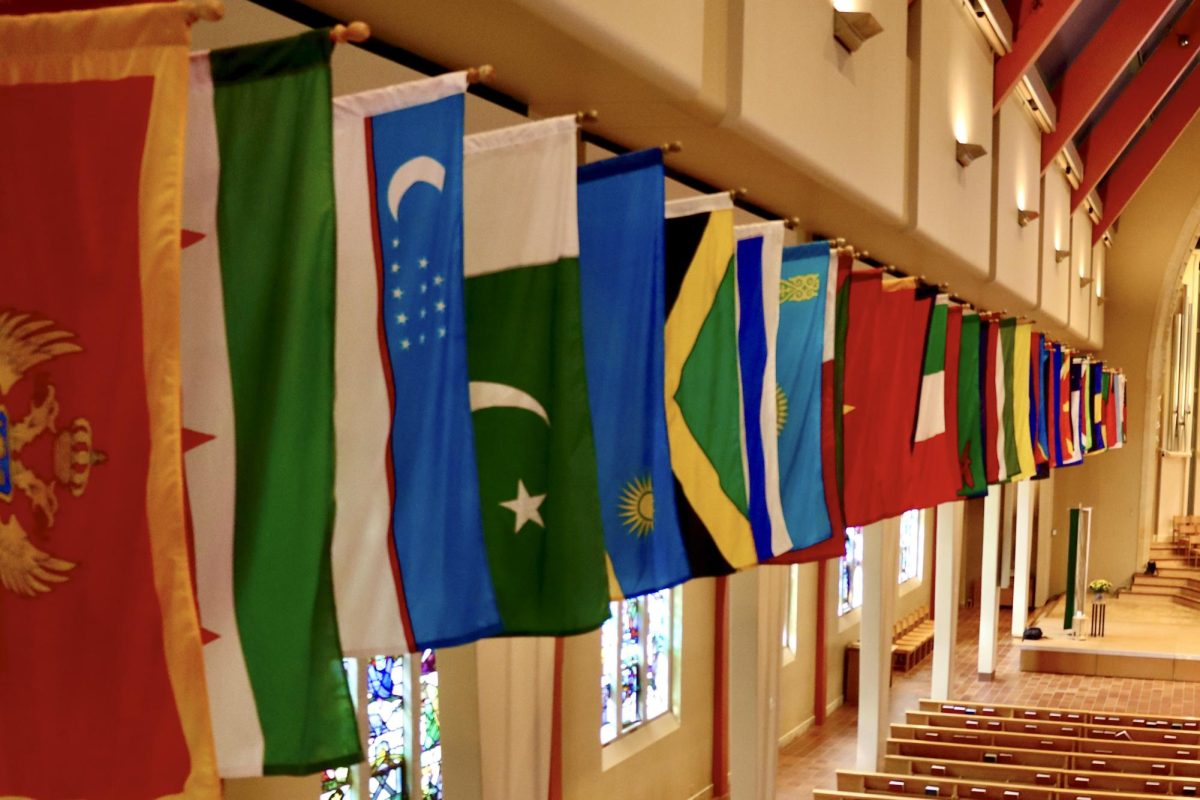Bill Porter, also known by his pen-name Red Pine, visited campus on April 5 to present a talk entitled “The Search for Solitude: China’s Hermit Tradition” and to discuss his most recent book, “Finding Them Gone: Visiting China’s Poets of the Past.” Porter is well known for his translations of Chinese texts and poetry and is a famous travel writer in China.
“We had used translated texts by Bill Porter in my classes,” Department Chair of Asian Studies Karil Kucera said. “We felt it would be incredibly useful to have a discussion of what it takes to do translation as well as bring to light a little-known area of Chinese tradition and ongoing practice – the mountain hermit tradition.”
Porter’s engaging lecture primarily focused on the tradition of Chinese hermits and his own experiences in the Zhongnan Mountains, where he spent time in the 1990s interviewing and studying Taoist and Buddhist hermits.
“The hermit tradition in China is one of the most important traditions in Chinese society,” Porter said. “Hermits have always been the most respected people, they’re part of society, not outside of society.”
Porter was working towards his Ph.D. in anthropology at Columbia University when he dropped out in 1972 to study at the Fo Guang Shan Buddhist monastery in Taiwan.
“I met a Chinese monk who taught me how to meditate, and I thought, ‘This is so much more interesting than studying,’” Porter said.
When he left the monastery two and a half years later, Porter turned his attention to doing translations of ancient poetry.
“Before I left, the abbot gave me a copy of Cold Mountain’s poetry, Han-shan,” Porter said. “And he had pirated Burton Watson’s English translations and stuck them in the back … so I took these English translations and looked at the Chinese, and saw how Burton Watson worked and thought ‘I could do this.’ And I started doing it, and I discovered that translating is a great way to improve your language skills. If you can look at something in Chinese and think you understand it, try to put it in English, you have to dig really deep.”
Translating Cold Mountain and other poetry written by Chinese hermits sparked Porter’s interest in the hermit tradition, and he soon found himself applying for grant money to fund a trip to China. After securing the funds in 1989, he went off in search of hermits to interview.
“Eventually I went to Xi’an and hired a taxi, and asked the taxi driver to take me to the foot of the Zhongnan Mountains – which is weird, because the Zhongnan Mountains stretch 800 kilometers east to west and 100 kilometers north – south … so the taxi driver just took me to the road that went deepest into the Zhongnan Mountains, and I said ‘Come back in a couple days and pick me up here.’ So I just hiked into the mountains, and within two to three hours I was writing down hermit addresses.”
Porter described the hermit tradition in China as similar to a Ph.D. program for the “spiritually inclined.”
“It has this aspect to it whereby they venerate solitude, [or] spending time alone. Because it’s a Ph.D. program, you need a B.A. or an M.A., you just don’t go into the mountains and live this kind of life. It’s really hard, you have to have a practice.”
Hermits typically spend three to five years alone in the mountains before returning to society, though some realize on their way down that they’re not ready to reenter and end up spending decades in solitude.
Chinese society has long revered hermits for their perceived wisdom and discipline, and in ancient times it was practically a prerequisite for government officials to spend time in the mountains before taking office.
“During the Tang dynasty, there was even a little joke about being a hermit. If you were a would-be official and you weren’t able to pass the exams, you went into the Zhongnan mountains and built a hut, and waited to be noticed.”





